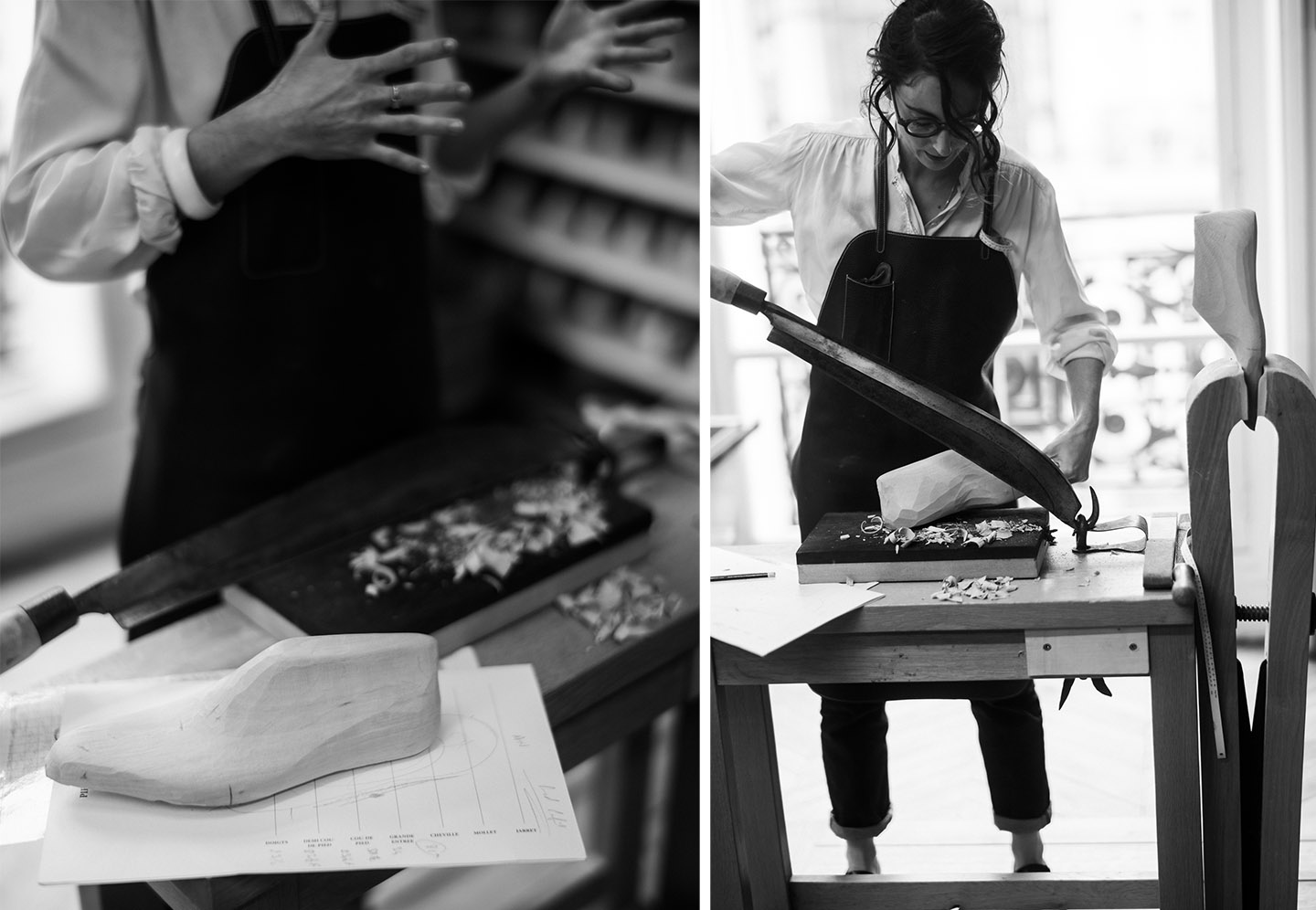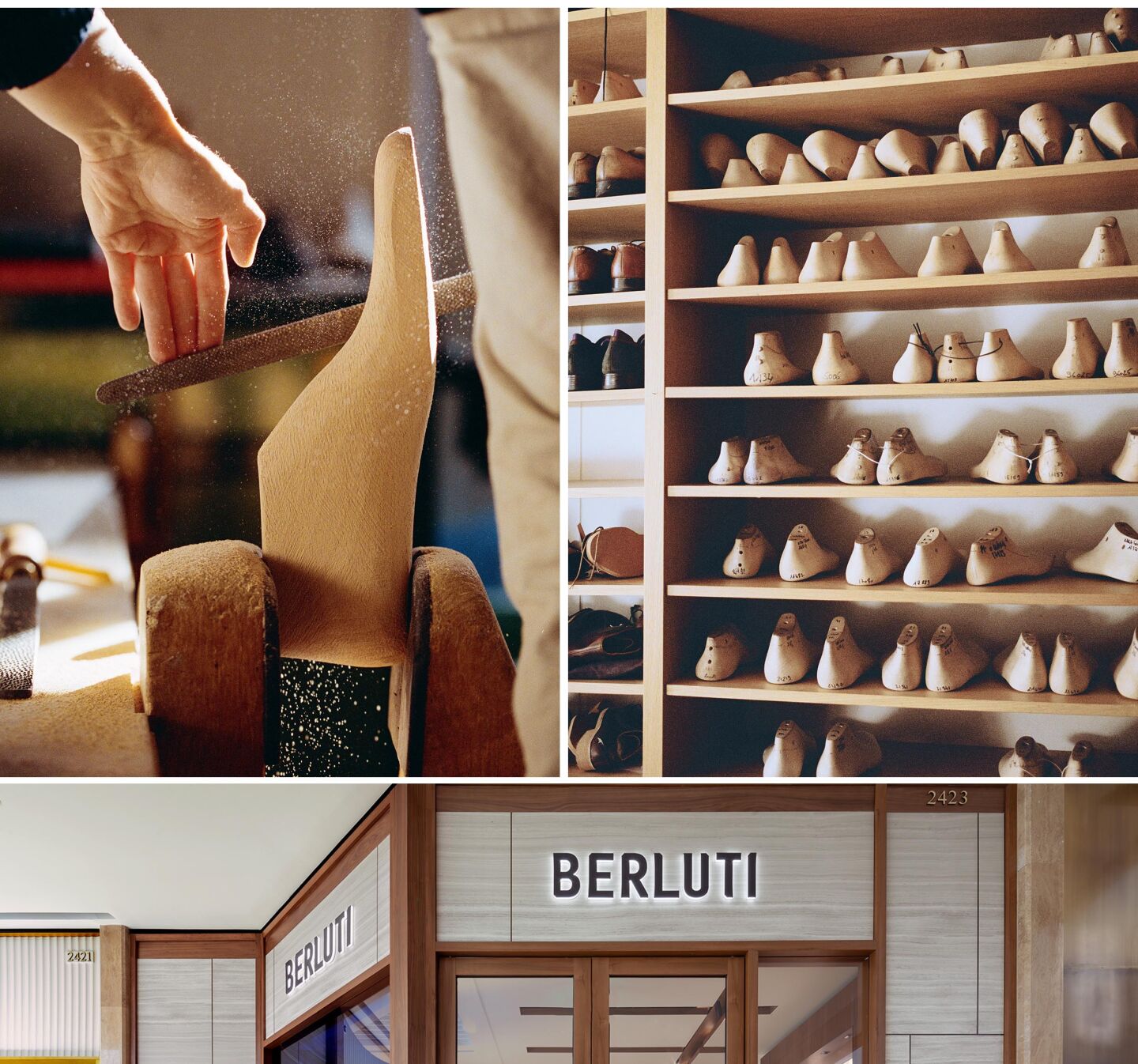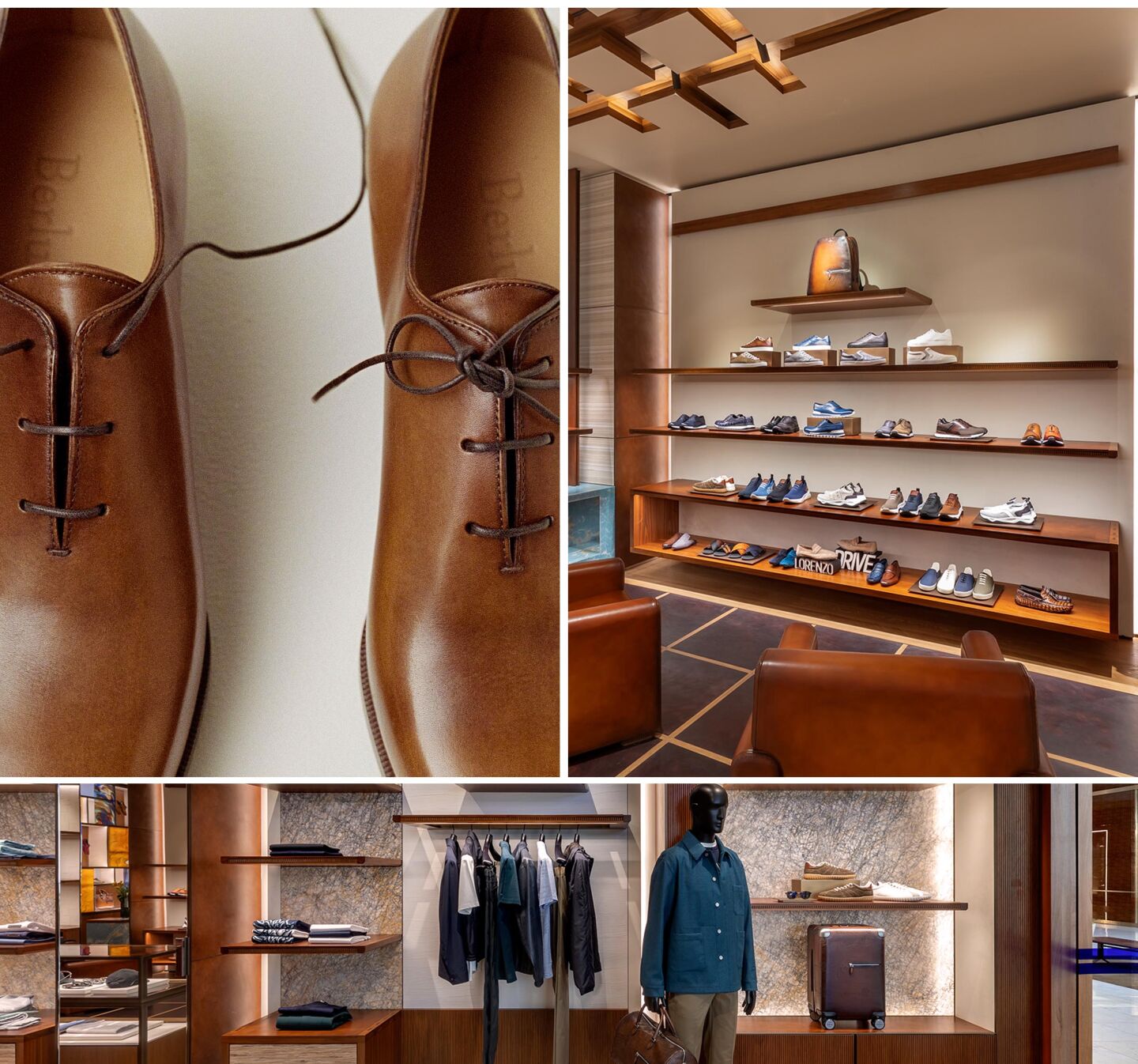Founded in 1895 by Alessandro Berluti in Paris, France, Berluti is celebrated as a luxury brand specializing in men’s shoes. Their offerings range from bespoke to ready-to-wear leather options, distinguished by their impeccable craftsmanship and unique patina technique—a method that involves artisans hand-coloring the leather, ensuring each pair of shoes boasts a distinct finish that can be personalized to a high degree.
And while Berluti is renowned for its exquisite men’s shoes and leather goods, it has also delved into collaborations and special editions tailored to the interests of its discerning clientele, including those who enjoy activities such as golf—a sport that resonates deeply with us at Pelican Hill.
Recently, we had the opportunity to speak with Paula Perier-Latour, a talented bootmaker at Berluti, about her journey, the brand, and the intriguing parallels between the training required to become a bootmaker and a professional golfer. Keep reading to discover more.

Can you tell us a little bit about yourself and your journey to working for Berluti?
Paula: Sure! Originally, I was working towards a master’s degree in psychology when I discovered a passion for bootmaking that I chose to pursue instead. After taking a course and a few subsequent internships, I was thrilled to be recognized with the “Prix de perfectionnement aux métiers d’art” (Advanced Craftsmanship Award) from the city of Paris, which led to a prestigious one-year apprenticeship at Berluti. Since then, I’ve loved being a bootmaker at Berluti, contributing to the brand’s legacy of exceptional quality and artisanal expertise.
What is required to become a Berluti bootmaker?
Paula: Berluti’s ethos emphasizes not just luxury and style, but also the profound human element behind its products. Becoming a Berluti bootmaker demands both technical and artistic skills, as well as a strong allegiance to the craft and the humility to continually challenge oneself while understanding customer expectations. It’s a demanding profession that requires significant time to master, yet it’s extremely rewarding because of the connections we forge with other people. While specific qualifications may vary and our backgrounds differ, we are united by our shared enthusiasm for the job and the unique creative strategy that defines our brand.

Since our readers are golf enthusiasts, we wanted to ask if you felt there are any interesting links between the training required to become a Master Artisan at Berluti and a Professional Golfer?
Paula: Interesting question! Becoming a Berluti bootmaker parallels the training required to become a professional golfer, emphasizing precision, focus, and patience. Just as a golfer meticulously plans and executes each shot, a bootmaker produces each pair of shoes with meticulous attention to detail, ensuring every stitch meets the highest standards. Berluti’s renowned patina technique exemplifies this dedication, blending precise movements, premium pigments, mastery of layering techniques, and artistic flair to achieve leather finishes of unparalleled quality. Patience is also pivotal in both endeavors; mastering bootmaking, like mastering golf, demands years of loyal practice and refinement. Each pair of bespoke Berluti shoes, fashioned over an average of 70 hours with contributions from skilled artisans, reflects the patience and focus inherent in every step of the process.
I would say passion is another similar trait that comes to mind. Passion serves as a cornerstone in Berluti shoemaking, elevating each product beyond utility to become a masterpiece of exceptional craftsmanship. Likewise, professional golfers demonstrate this quality through their relentless pursuit of excellence, refining their skills through strategic planning, physical conditioning, and mental fortitude. This shared commitment to overcoming challenges and continual improvement underscores the passion and determination that can be seen in both Berluti’s artisans and professional golfers.
Finally, I definitely want to mention failure. Both professions require the ability to analyze setbacks and learn from mistakes to foster growth. For Berluti shoemakers, every mistake is an opportunity to sharpen our artistry. Similarly, professional golfers constantly encounter challenges on the course, from missed shots to unfavorable weather conditions. Each setback offers valuable lessons, pushing golfers to refine their strategies and improve their practice. Just as us shoemakers tweak our methods to perfect a pair of shoes, golfers adjust their techniques to enhance their game.

Is a custom piece of footwear an enhancement to someone’s golf game like a custom-fit club would be?
Paula: A pair of made-to-measure shoes provides comfort, stability, and confidence, which can have an effect on performance! However, it is important to note that these are traditional shoes, not technical shoes.
What have you learned in terms of refining your technique over time?
Paula: The profession of bootmaking, like craftsmanship in general, is a lifelong apprenticeship. As bootmakers, we hone our process through direct engagement with customers and interacting with various individuals. These experiences not only help us sharpen our skills, but also fuels our fervor for excellence. Our dedication to continuous advancement motivates us to scrutinize our work and explore both modern innovations and time-honored methods. This approach ensures that our craft progresses while respecting its rich heritage.


